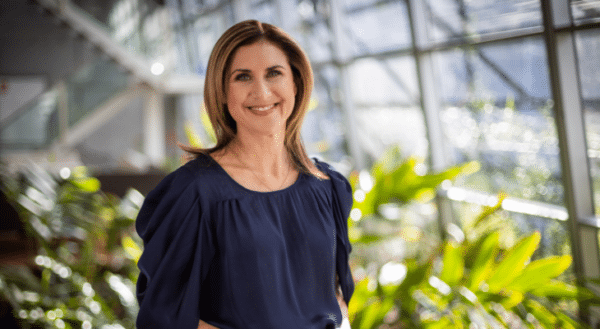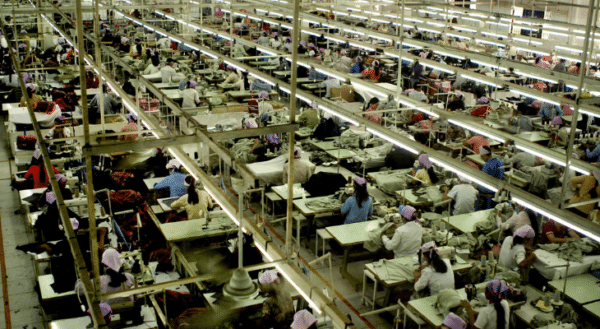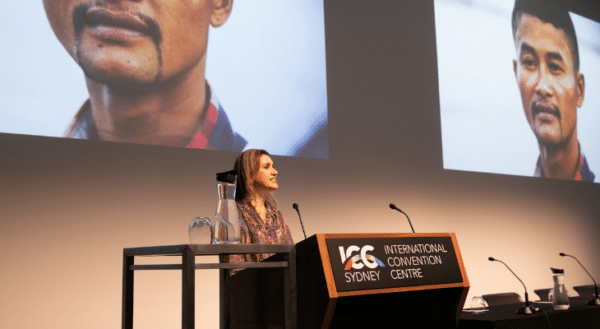Building Sustainable & Ethical Supply Chains
Discover what was discussed and more at the Naturally Good 2021 Business Summit. If you missed this session or would like a recap, check out these key takeaways.
The rise of conscious consumerism is driving a new interest in sustainability which is now an essential ingredient for health and wellness companies across diverse verticals.
With a growing focus on sustainable development, the impact of climate change and biodiversity threats both have the potential to impact supply chains. One key issue impacting sustainability that perhaps does not receive as much attention is that of human rights.
Sally Townsend, Blackmores Group Head of Sustainability, recently unpacked this issue in her insightful talk at this year’s Naturally Good Business Summit. More and more, consumers are prioritising products that are ethically produced and are wanting transparency around this issue.

Sally Townsend, Head of Sustainability, Blackmores Group
Modern slavery
Modern slavery covers all sorts of exploitation including human trafficking, forced labour, debt bondage, forced marriage and the worst forms of child labour.
In 2018 the Australian government introduced legislation requiring Australian entities with revenues of more than $100 million to report on their actions to assess and address the risk of modern slavery in their operations and supply chains.
“Across the Natural Healthcare Industry, this affects a lot of us because we either exceed that threshold or we’re upstream in the supply chain of an entity with reporting requirements which compels us to act,” said Townsend.
Key stats:
- 40.3 million people around the world trapped in modern slavery
- 71% are women and girls
- 62% are in the Asia Pacific region
- Reporting requirements for Australian entities with revenues over $100 million
- Learn more at homeaffairs.gov.au

Assessing risk
Understanding where there is risk is vital for any producer.
Factors elevating risk of exploitation include:
- Regional hotspots
- Contract or migrant labour
- Seasonal work
- Use of third party recruiters
- Restricted access to sites
- Long and complex supply chains
Last year Complementary Medicine Australia (CMA) convened a modern slavery working group. The most significant output of that team was the development of an industry-wide supplier questionnaire.
Townsend said the intent is that asking the right questions will help you understand the controls and governance in a supplier to assess and address exploitation.
“It’s a big investment of time for businesses to provide this information (it’s a 10-page document – half if it is questions) and having a single industry-wide questionnaire will mean suppliers can use the same responses. It’s an opportunity to use their resources to drive progress not spending their time on paperwork. It also helps address the challenge that many of us didn’t know the right questions to ask.
“For example – what is the age of your youngest worker? Does your organisation charge recruitment fees to workers or retain any identity documents of your workers? The answers to these questions could indicate a higher risk of exploitation.”
Key learnings
Townsend explained that Blackmores is committed to a program minimising risk for workers. “The first thing we learned was the value of setting the tone for continuous improvement. We would rather encourage openness and strive to do better than to send problems underground. Is it OK for suppliers to say no if you ask about their controls – are you trying to find things out or catch them out?
“The CMA questionnaire doesn’t set the tone for why you are asking for this information and how it aligns to your program of work – that’s something that you need to do.
“So, the tone you set with suppliers is important. Equally important is the conversation you start within your own organisation – are there right and wrong answers? Once we know there’s an issue, what is your responsibility to act?”
Townsend advised to set a tone that establishes the beginning of a trusted conversation with suppliers, not instils fear of lack of compliance – otherwise you will send the problems into the shadows.
“Have healthy conversations within your organisations about your own tolerance for risk of harm to people. One of our first actions was to build a governance framework so that human rights risk was operationalised. We’ve learned the value of having a clear process for addressing and escalating issues, so we know what to do if we find an area of concern. Proceeding with corrective action should not be at the discretion of any individual and needs to take a victim-centric approach so that we don’t unintentionally create worse outcomes for people.”

Internal governance
Guidelines for internal governance for human rights risks include:
- Clear accountability
- A structured approach to evaluating risk
- Development of the controls that will address those risks and embed and integrate those into the way you work
- Put the right measures in place
- Transparency about your progress
- Collaborate across your organisation, supply chain and industry for greater impact
“Learning more about using the questionnaire, overcoming challenges when problems are exposed and working together towards zero exploitation by 2030 is something that all companies who value ethics should make a priority.”
A big thank you to our speakers for being ap art of Naturally Good 2021. If you would like to read more recaps from our speaker sessions, subscribe here to get regular updates.
-
Get your FREE ticket
- REGISTER FOR FREE
